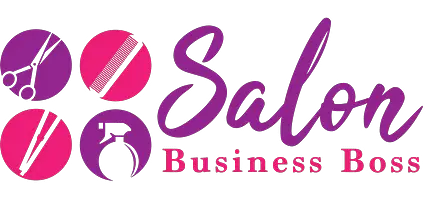Pampering people all day sounds like a great way to make a living. But just like any other business, it is still a business. Navigating the complex legal and tax differences of the various business structures available to you as a business owner is no small task. But here’s some good news. We researched for you.
By and large, the best business structure for a hair and nail salon is an LLC (Limited Liability Corporation). LLC formation has many of the benefits of incorporating, but keeps some of the flexibility of sole proprietorships. The primary benefits of an LLC are:
- Personal liability protection
- Reduced corporate responsibilities
- Tax flexibility
- Ability to raise capital through equity
If you got lost on any of that terminology, have no fear. Below we’ll discuss in more detail the factors that make an LLC organization the best business structure for a typical hair and nail salon.
Personal Liability Protection
Most individual-owned businesses start out as sole proprietorships. What this means is that you are the sole owner. For Uncle Sam’s purposes, you and the business are indistinguishable. This can make things easy to understand come Tax Day, but it does leave you vulnerable to some very important considerations, such as your personal liability.
Say you or someone else on your business property cut someone’s hair a little close, and it causes an accident. If that person decides to sue, everything you own is on the line. Since you are, for all intents and purposes, indistinguishable from the business, whatever you own or have in the bank can be used as collateral. That’s not good.
An LLC, or Limited Liability Corporation, does just that – it limits your liability. It separates you from the business, creating a barrier of sorts between your personal assets and the business assets. In the case of some unforeseen disaster, it would only be the business that could potentially fail, and not your livelihood. Often, this change information has been the saving grace for many who have averted personal bankruptcy.
Reduced Corporate Responsibilities

If the liability concern effectively steers you away from operating as a sole proprietorship, your remaining options are essentially limited to LLC, Partnership, or C Corporation. Of these three, LLC’s provide the most amount of wiggle room in continuing business as usual without many new administrative tasks (which we ALL want to avoid).
C Corporations, which are typically larger in size, are watched much more closely by the authoritative government and tax regulators. For this reason, they are required to be managed by a Board of Directors, which meets at least annually and publishes board minutes to discuss concerns of the shareholders. Also, every owner is considered a shareholder – owning a certain “share” or percentage of the business. Profits must be distributed according to your share size, and cannot be split based on other circumstances without a lot of accounting and administrative work of shifting equity and finagling ownership percentages.
I could go on, but you get the picture. C Corporations paint a rigid picture of corporate policy and regulation that can be difficult to keep up with (and the penalties for noncompliance are steep). Partnerships can be similarly frustrating, where profit-sharing agreements must be made, and the amount invested by each partner tends to be valued higher than the work put in individually. Your payments come as a draw on your owner’s equity, and not in the form of a traditional salary.
There are a lot of nuances here, but essentially, LLC’s can pay its owners as employees. As employee-owners, you can be paid your fair share through a salary, which will show up as income on your W-2, and the remainder of the leftover profits will flow through on your taxes as business income. Your salary (and that of the other owners) is considered a business expense, which reduces the overall business income that is passed through to the owners.
In other words, you can avoid the constant administrative labor associated with C Corporations and Partnerships and following the ever-changing policies and regulations and still get some of the benefits of incorporating by making your hair and nail salon an LLC.
7 Disadvantages of Owning a Hair Salon.
Tax Flexibility
Not only can you avoid some of the headaches other business structures present by instead choosing an LLC, the structure of LLC actually gives you some options to choose from when it comes to paying taxes.
As an LLC, you can choose to have the remaining profits left in the business treated as corporate income or have it pass-through as personal business income. No other business structure is set up with multiple options. This means your salon could leave the excess funds in the business and pay taxes on its own without hitting your personal tax return. This can be helpful, especially if you anticipate making any major business expenses in the following year. Instead of claiming the income and paying personal taxes on it, only to turn around and add more of your personal investment to the business, the business can use its own funds.
This is also an effective tax strategy if you are already in a high tax bracket. Perhaps you own multiple businesses or have another full-time job. If that is the case, the corporation could end up paying a lower tax rate than you would if you personally assumed the income as pass-through income.
However, having the option to pass through the income to your personal tax return either as an S Corp or LLC keeps in line with most small businesses. It allows you to have more say in how much you should be paid and what you, as an owner, made from running the business that year. What’s more, it typically allows you to have more sway in making the most of tax advantages.
Ability to Raise Capital Through Equity

Flexibility and weighing your options are the name of the game when it comes to an LLC. As a sole proprietorship, your business can only grow, change, and develop as fast as you can. However, LLC’s are independent and able to provide options that are not possible for sole proprietorships. One of these major advantages is the ability to raise capital using the equity of your salon. “Equity” is your investment in the company, and most importantly, the percentage of the business that you own.
Sole proprietorships have nothing that you can give out. They have no value beyond yourself. The LLC structure allows you to put a valuation on the worth of your business, and trade small percentages of ownership for real dollars. You don’t want to go overboard and give out a majority stake of your company. However, if you are considering opening a second (or third, or fourth) location, opening up your business as a source of funds may be necessary to take you to the next level. Potentially, you may find an investor who will end up being a great business partner, since they will now be partial owners of your business if you trade equity for invested money or other resources.
Equity can always be bought back or redistributed so long as your operating agreements allow. As the value of the company grows, so does the value of your percentage of ownership. Safe to say, establishing an LLC opens up a world of opportunities to grow the business beyond yourself.
Do Makeup Artists Need Insurance?
LLC is the Way to Be
Discussing business structures and evaluating tax procedures isn’t typically a conversation many are interested in. You’re not an accountant for a reason – you just want to run a hair and nail salon! However, if you want to be responsible for your hair and nail salon, knowing which business structure is most beneficial for you is an important step.
For liability protection, ease of operations, and tax and funding advantages, LLC formation is typically the way to go. Structuring your business as an LLC establishes the business as a separate entity. The benefits and protections made available by an LLC structure are necessary to consider, especially as your salon grows. Now, get back to pampering!
Related Questions

Is an S Corp an LLC, or is that different?
S Corporations are a type of LLC that must file a special election to be treated differently. While S Corps are LLC’s by nature, they provide a tax benefit in that shareholders do not have to pay self-employment tax on distributions. However, shareholders must first be paid a reasonable salary that is subject to regular employment taxes.
Can my salon be structured as an LLC if I am the only owner?
Yes, there is such a thing as a single-member LLC. If this is the case, your taxes will probably stay the same as if you were still a sole proprietor, in that it will flow through as Schedule C income. However, the liability protection and potential ability to add in new owners/investors are still major benefits to consider.
Looking to start your own Salon? Get the documents you need to get organized and funded here.
Please note: This blog post is for educational purposes only and does not constitute legal advice. Please consult a legal expert to address your specific needs.

About the author. Entrepreneur and Salon Business Fan.
Hi! I am Shawn and I am a happy individual who happens to be an entrepreneur. I have owned several types of businesses in my life from a coffee shop to an import and export business to an online review business plus a few more and now I create online salon business resources for those interested in starting new ventures. It’s demanding work but I love it. I do it for those passionate about their business and their goals. That’s why when I meet a salon business owner, I see myself. I know how hard the struggle is to retain clients, find good employees and keep the business growing all while trying to stay competitive.
That’s why I created Salon Business Boss: I want to help salon business owners like you build a thriving business that brings you endless joy and supports your ideal lifestyle.

